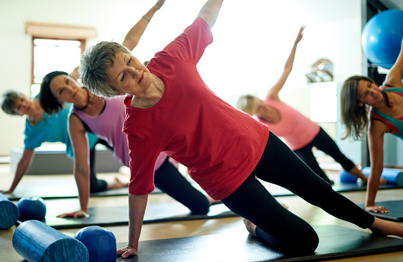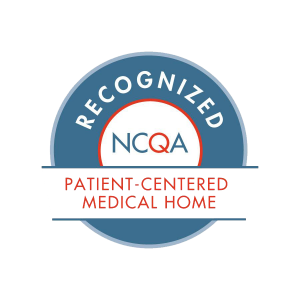
If I’d known I was gonna live this long, I’d have taken better care of myself.
Eubie Blake, age 100 (1983)
Seniors face unique challenges. Please use the information and links to sites below to help deal with these and to stimulate discussions with your health care provider.
General Aging Health Information
See other Pacific Medical Group web pages for information and links for Diabetes, Hypertension, High Cholesterol and other chronic medical conditions.
There are many websites with good, general medical advice. The following is one oriented to seniors.
Health In Aging
Retirement Connection
Arthritis
Nearly 70 million American adults have arthritis. Twenty-seven 27 million are dealing with Osteoarthritis (OA), the ‘wear and tear’ type of joint pain that can limit severely and affect lives. Hands, spine (neck and back), hips and knees are most commonly affected. These led to 39 million doctor office and 2.2 million emergency department visits (ED) in 2005, with over 85 million prescriptions, and even more over the counter medications and supplements used yearly.
Goals for Osteoarthritis treatment include: control pain, improve joint function, maintain normal body weight, and achieve a healthy lifestyle. To reach these goals, patients and health care providers work on exercise, weight control, rest and decreased stress on joints, pain relief techniques and alternative therapies, medications to control pain, and at times, injections or surgery.
Please view these sites for information about arthritis, and to help with your discussions on care with your health care providers.
Falls and Fall Prevention
Every year, almost a third of Americans over age 65 will have a fall. Most of these are relatively minor, but over 20% can cause moderate to severe injury (deep lacerations, head trauma, fractures) that will need medical office or emergency room visits, hospital admissions, and/or post-hospital Rehabilitation stays, and lead to billions of dollars of expenses. Falls are also the major cause of death from injury in the elderly.
Many falls and injuries are preventable. Seniors can take several steps to help: With exercise, strength and balance can improve. For example, Tai Chi programs have proven to decrease falls.
Everyone should check their vision regularly and upgrade eyeglasses. Medications (prescription and over-the-counter) all have side effect risks – review with your pharmacist and Health Care Provider how lightheaded and sleepy side effects could be lessened.
Screen for Osteoporosis, and discuss with your Health Care Providers if taking Calcium and Vitamin D would be good for you.
Make homes safer with a Home Fall Prevention Checklist review and modifications.
Other Safety Tips:
- Keep emergency numbers in large print near each phone.
- Put a phone near the floor in case you fall and can’t get up, or always have a charged cell phone with you.
- Think about wearing an alarm device that will bring help in case you fall and can’t get up.
Below are some sites with more information about falls and fall risks. Please let us know if you also have other helpful resources.
Center for Disease Control (CDC)
Injury Prevention & Control: Home and Recreational Safety, Information
Check for Safety: A Home Fall Prevention Checklist for Older Adults
American Geriatrics Society – Foundation for Health in Aging
National Institute of Aging Health Topics
Memory
Memory lapses are common when people age, and generally do not indicate impending severe dementia that many fear. Rather, there are many degrees of cognitive limitations in older people, as there are limitations in physical activity, and most seniors function well, with varying degrees of assistance.
Strategies for improving memory include using reminder notebooks & calendars (electronic or paper), weekly pill minder boxes, and the like. Seniors need to get adequate sleep (is snoring a problem?), good fluid intake, and a good diet. They should talk with their Health Care Provider about nutritional supplements – some are helpful, some are questionable or harmless fads, and some ‘megavitamins’ can be hurtful. Tobacco use is unquestionably harmful. Though some studies suggest mild alcohol use may have health benefits, there is no doubt that heavy drinking (more than 2 drinks/day for women, 3/day for men) adds to brain cell damage.
Good physical activity promotes good health for the brain as well as the body.
“Brain exercises” such as crossword puzzles, memory puzzles (paper or on-line), playing a musical instrument, or reading, etc. are also recommended.
Memory problems can be the most prominent outward symptom for seniors who are depressed. Counseling and medication for this may markedly improve memory along with mood and energy.
Control of medical problems such as Hypertension, Diabetes, Cholesterol, etc, decrease the risk for Stroke, and chronic low grade brain damage. However, some medications may cause sedating side effects and cloud the thinking process.
“Age-related cognitive decline” is the description for mild problems. People who notice mild memory problems that do not interfere with day to day living may still want to use the techniques above to keep doing well.
“Mild cognitive impairment” (MCI) involves more moderate decline. On testing, memory is only modestly diminished, and the normal activities of daily living are not impaired. Patients and family members do notice. The strategies above are reasonable to undertake. The effectiveness of medications specifically for memory problems is still unclear.
Dementia is not one specific medical diagnosis, but simply indicates more involved memory problems, caused by any of several different medical problems. Alzheimer’s disease is the most common cause of progressive dementia problems (75%), but even this has a variable course for people affected. Vascular dementia may involve stroke or ‘small vessel disease’ (cause of up to 10% of dementia). Research shows that previous serious or repeated head trauma may be a greater cause for brain damage than we knew. (Wear bike helmets!).
There is no one specific test that diagnoses ‘dementia’. Rather, many different memory tests, lab, and imaging studies evaluate for causes that may be controlled or other not. Not everyone needs a head CT or MRI.
The following web sites have more that may be helpful. Please discuss these issues with your health care provider.
Alzheimer’s Association, Oregon Chapter: Local Support Groups, Education opportunities, etc.
Alzheimer’s Association: Information on caring for family members with Alzheimer’s.
American Health Assistance Foundation: Beyond Brain Games: What’s a Brain-Healthy Lifestyle?
National Institute of Aging/Alzheimer Information
Web MD Memory page


